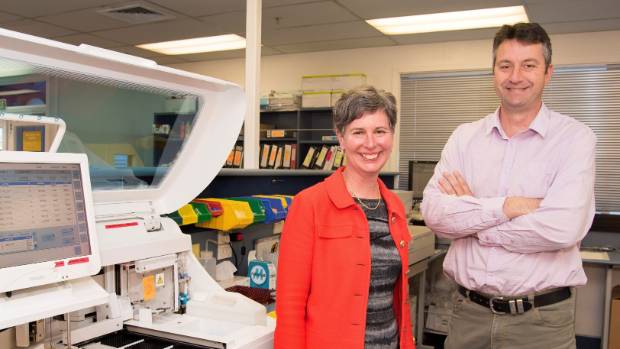Chief executive Dr Ruth Appleby said the company had completed fund raising of $750,000 in a record four days with the help of seed investment company Pacific Channel.
Appleby said the technology would help identify potential damage to the heart before it happened, and discount the large number of people unnecessarily referred to hospitals
The technology came from research developed at University of Otago's Christchurch Heart Unit.
The new diagnostic tool allows doctors to determine which patients are suffering from unstable angina that will almost certainly lead to a heart attack, as opposed to those with chest pain who don't need to be admitted.
Patients with unstable angina have high risk and require immediate treatment to avoid heart attack and associated muscle damage.
The money just raised was the first in further efforts to seek $5 million to fund clinical trials in Europe that would help secure regulatory approvals for the technology. The fund raising will be led by a UK-based investment company Innovator Capital.
Appleby said the technology had huge global potential because in the US alone, 8 million people arrive at hospitals with chest pain, but only one in eight have a life-threatening risk of heart attack.
The researchers behind the diagnostic tool are the same people responsible for identifying the current standard biomarkers of heart failure.
These biomarkers were developed in the 1990s and have since become widely used in hospitals worldwide, but that technology was not patented by them.
This is the first technology they have patented themselves.
It also has potential to save millions of dollars.
Appleby estimated that in the US it would equate to about $6.7 billion a year.
She said the clinical trials would involve 1000 patients at several clinics in Europe.
The shareholders in Upstream include Otago University (51 per cent), Powerhouse Ventures (19 per cent), NZ Investment Fund (10 per cent, with smaller percentages held by other investors including the researchers.
The aim of granting shares of options to researchers was to incentivise them, although the main motivation for them was to see the technology adopted for everyone's benefit, Appleby said.


